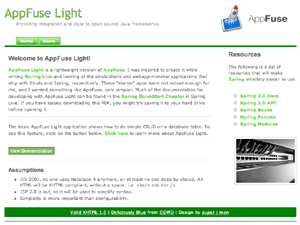Talks for the Colorado Software Summit
I'm looking forward to another great year at the Colorado Software Summer in October. I submitted a couple abstracts back in April and have recently been granted the opportunity to change one.
The reason for the change is Yan Pujante (founder at LinkedIn) is going to do my talk on Building LinkedIn's Next Generation Architecture with OSGi and Spring. Since he's been very integral in writing the existing codebase, as well as the move to OSGi, it seemed more appropriate for him to do this talk. I'd like to keep my talk on Appcelerator, but I'm having a hard time deciding between four other options.
If you're planning on attending CSS this year, let me know which one you'd like to see most.
- What's New (or coming) in Spring 3.0
- Implementing Spring Security, OpenID and OAuth
- Comparing RESTful Web Frameworks: Struts 2 vs. Spring MVC
- How Yahoo's Rules for High Performance Web Sites made LinkedIn 50% Faster
I could see changing the first option to Spring Web specifically. I could also see adding Rails and Grails to the 3rd choice. The 4th one is a lofty goal as the project has just begun. If we succeed, it could be a great talk.




